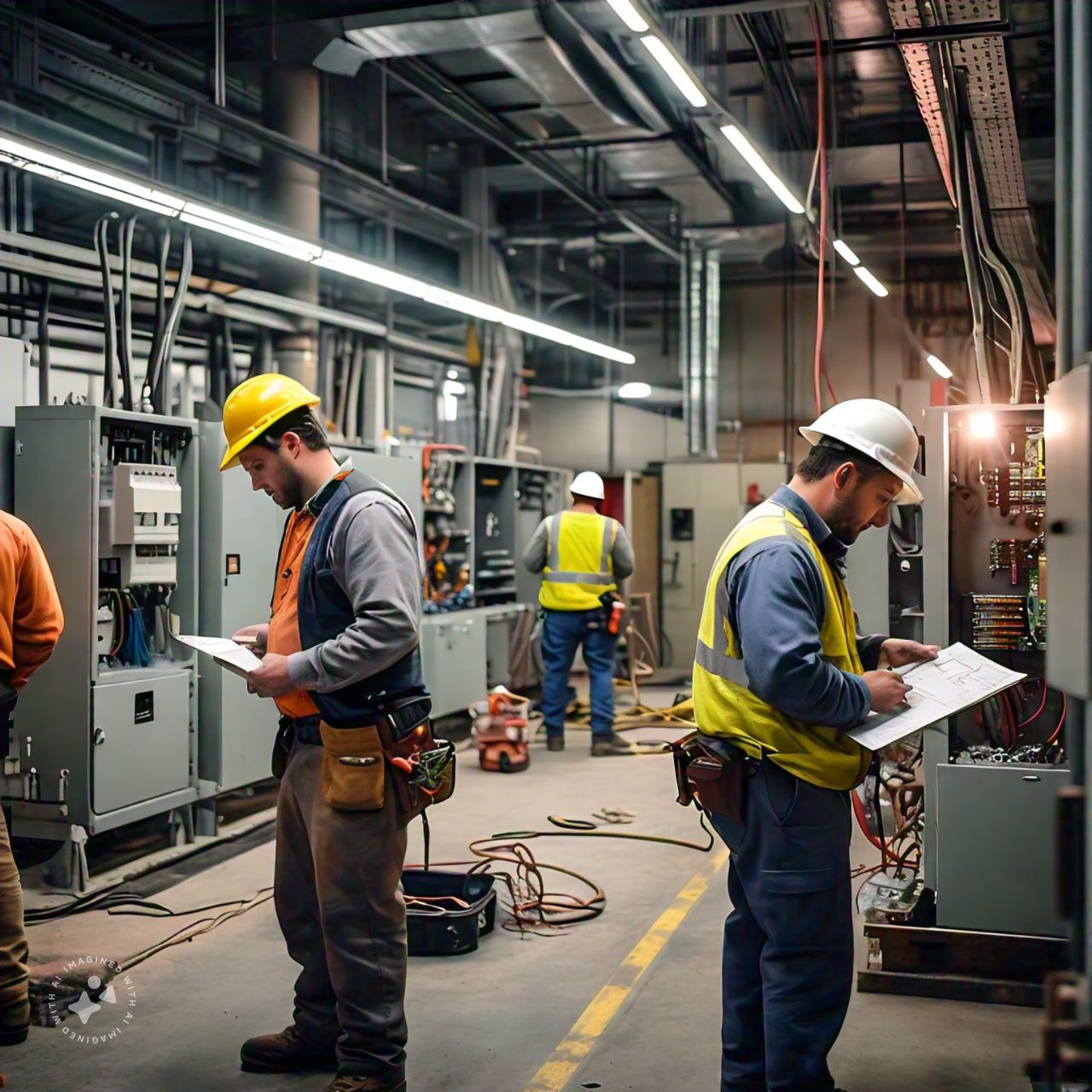Tech & Gadgets
Powering Productivity: How Industrial Electrical Contractors Drive Success?

In the world of industrial operations, efficiency and reliability are paramount. From manufacturing plants to warehouses, industrial facilities rely heavily on electrical systems to power their operations.
Industrial electrical contractors play a crucial role in ensuring that these systems are designed, installed, and maintained to meet the rigorous demands of modern industry. In this comprehensive guide, we’ll explore the vital contributions of industrial electrical contractors to powering productivity in industrial settings.
The Role of Industrial Electrical Contractors
Industrial electrical contractors specialize in the design, installation, and maintenance of electrical systems in industrial facilities. Their expertise encompasses a wide range of electrical components and systems, including power distribution, lighting, control systems, and automation.
Industrial electrical contractors work closely with facility owners, engineers, and project managers to ensure that electrical systems are tailored to meet the specific needs and requirements of each industrial operation.
Design and Installation
One of the primary responsibilities of industrial electrical contractors is to design and install electrical systems that are safe, efficient, and reliable. This involves assessing the electrical needs of the facility, determining the appropriate equipment and components, and creating detailed electrical plans and blueprints.
Industrial electrical contractors must adhere to strict safety standards and building codes while ensuring that electrical systems are optimized for performance and energy efficiency.
Maintenance and Repairs
In addition to design and installation, industrial electrical contractors are also responsible for the ongoing maintenance and repair of electrical systems in industrial facilities.
Regular maintenance helps prevent equipment failures, reduce downtime, and extend the lifespan of electrical components. Industrial electrical contractors perform routine inspections, testing, and troubleshooting to identify potential issues and address them before they escalate into costly problems.
Driving Efficiency Through Automation
Automation plays a significant role in increasing efficiency and productivity in industrial operations, and industrial electrical contractors are at the forefront of implementing automation solutions.
Automation technologies such as programmable logic controllers (PLCs), motor controls, and robotics are used to streamline processes, improve accuracy, and reduce labor costs. Industrial electrical contractors work closely with automation engineers to integrate these technologies seamlessly into existing electrical systems, ensuring optimal performance and reliability.
Programmable Logic Controllers (PLCs)
PLCs are programmable electronic devices used to control and automate machinery and processes in industrial settings. Industrial electrical contractors are responsible for programming, installing, and maintaining PLC systems, ensuring that they operate smoothly and efficiently. PLCs are used in a wide range of applications, including manufacturing, packaging, material handling, and quality control.
Motor Controls
Motor control systems regulate the operation of motors and other electrical devices in industrial equipment. Industrial electrical contractors design and install motor control systems that optimize energy usage, reduce wear and tear on equipment, and enhance overall system performance. Variable frequency drives (VFDs), soft starters, and motor starters are common components of motor control systems used in industrial settings.
Ensuring Safety and Compliance
Safety is a top priority in industrial facilities, and industrial electrical contractors play a crucial role in ensuring that electrical systems meet all safety standards and regulations. They are responsible for implementing safety measures such as grounding, bonding, arc flash protection, and emergency shutdown systems to protect workers and prevent accidents.
Industrial electrical contractors also ensure compliance with industry-specific regulations such as the National Electrical Code (NEC) and Occupational Safety and Health Administration (OSHA) standards.
Arc Flash Protection
Arc flash events pose a significant safety hazard in industrial settings, potentially causing severe injuries and damage to equipment. Industrial electrical contractors implement arc flash protection measures such as arc flash studies, labeling, and personal protective equipment (PPE) to mitigate the risks associated with arc flash incidents.
By identifying potential hazards and implementing appropriate safety measures, industrial electrical contractors help create a safer working environment for employees.
Emergency Shutdown Systems
Emergency shutdown systems are designed to quickly and safely shut down electrical equipment in the event of an emergency or abnormal condition. Industrial electrical contractors design and install emergency shutdown systems that are tailored to the specific needs of each industrial facility, ensuring rapid response and minimizing the risk of injuries and property damage.
Conclusion
Industrial electrical contractors play a critical role in powering productivity and driving success in industrial operations. From design and installation to maintenance and repair, industrial electrical contractors are responsible for ensuring that electrical systems meet the rigorous demands of modern industry.
By implementing automation technologies, ensuring safety and compliance, and optimizing system performance, industrial electrical contractors help industrial facilities operate more efficiently, safely, and profitably. As the backbone of industrial electrical systems, industrial electrical contractors are essential partners in powering productivity and driving success in industrial settings.
Stay ahead of the curve with the freshest news updates by exploring TodayFirstMagazine!






